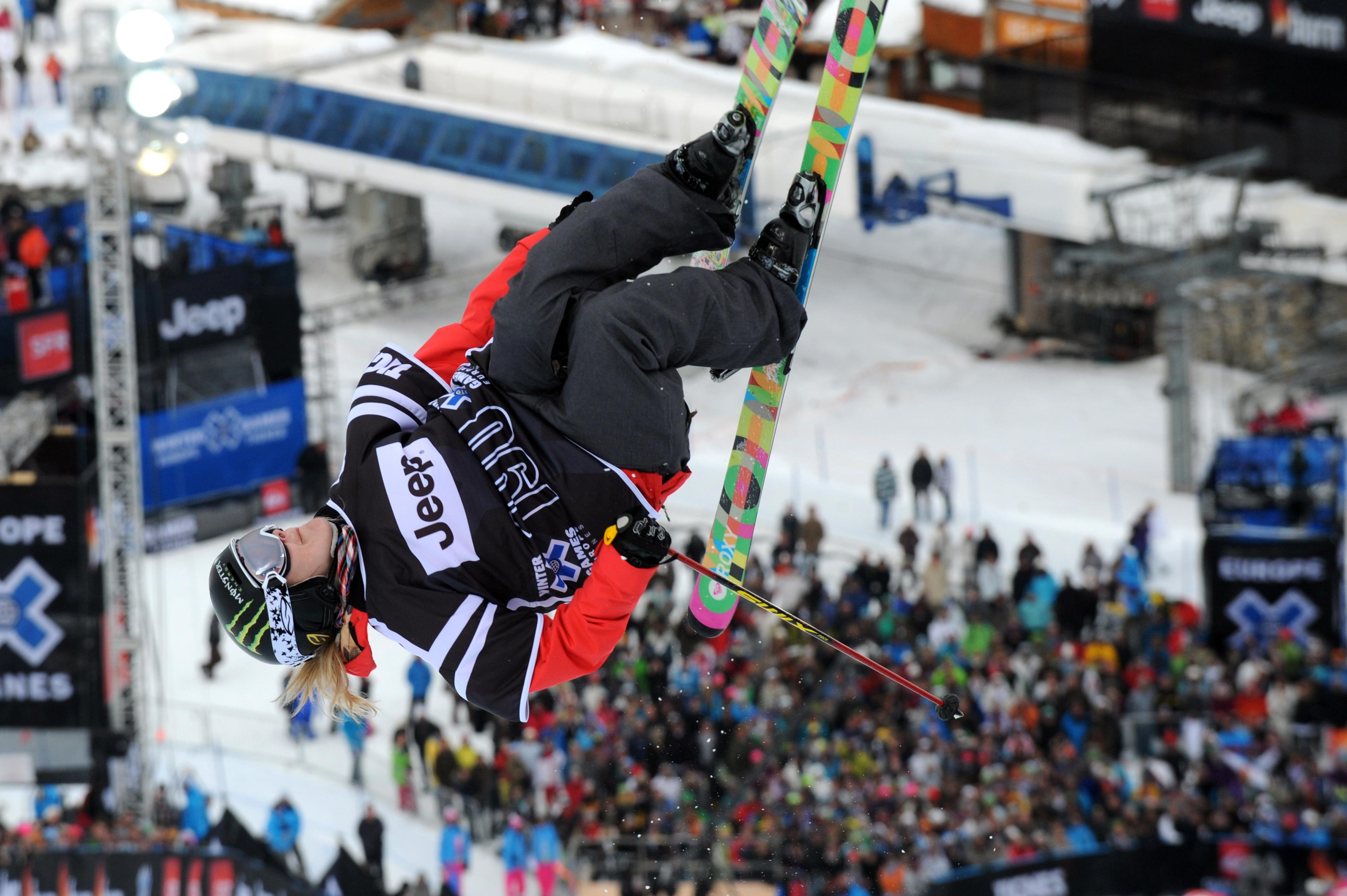David Wise and Maddie Bowman are the best halfpipe skiers in the world. It’s not surprising, then, that both Americans won gold in the event’s Olympic debut, but it is heartening. In a sport where an untimely fall can undo any competitor at any time, it’s great to see the man and woman who exemplify freeskiing at its best perform up to their capabilities.
For all their talents, though, Wise and Bowman are far from the most famous names in freeskiing. Simon Dumont and Sarah Burke were supposed to be the faces of the first freeskiing-friendly Olympics. The fact that Dumont didn’t make it to Sochi shows how cruel sports can be. And cruel doesn’t begin to describe the absence of Burke, who died after a crash just more than two years ago.
Dumont’s contemporaries call him the Godfather. The name fits. Dumont has dragged freeskiing from the fringes of winter sports toward legitimacy with each gravity-defying double cork 1260. Despite missing large chunks of his career due to injury, the 27-year-old has won more halfpipe medals than any skier in the history of the sport, skiing with a Bode Miller-esque reckless abandon that’s made him as beloved as he is successful.
Sochi was finally going to provide Dumont the stage he deserved. Then, on Jan. 17 in a qualifying event in Park City, Dumont tore his ACL for the second time in 18 months. Back in September, I interviewed Dumont for an article that appeared in Men’s Journal. When I spoke to him again after this latest knee injury, he told me that he’d been sulking for three days. “The toughest part of this has been that I feel like I let a lot of people down. So many people believed in me, and it just got really tough recently to not believe in myself when so many others believed. And then to have it unfold like that, it was just heartbreaking,” he said.
One reason it was so heartbreaking is that Dumont was supposed to carry the torch that Sarah Burke had already carried so far. Burke, a four-time X Games gold medalist and the first woman to land 720, 900, and 1080 jumps in competition, was an innovator and a glass-ceiling breaker—the type of rare personality destined to be at the center of a movement. The fearless Canadian had long crusaded for freeskiing’s inclusion in the Olympics. Prior to the Olympic campaign, she had also pressed for equality for women within freeskiing itself, petitioning for women’s ski halfpipe to be included in the X Games and pushing for women to receive the same prize money as their male counterparts.
In 2011, when the IOC added freeskiing to the Olympic slate, Burke was credited as one of the people most responsible for the bid’s success. At that moment, she found herself—along with Dumont—the most recognizable star in a rapidly ascending sport. As a teenager, Burke would sneak in after hours to snowboard-only halfpipes in order to drop in on skis. Now, she was going to be an Olympian.
Nine months later, the 29-year-old Burke died as a result of an injury suffered during training. For those who knew her, it was unfathomable that such a radiant, indomitable personality could be snuffed out. Among those sent reeling was Dumont, who told USA Today that Burke “was one of the most intelligent, beautiful, strong people I ever met in my entire life.” Last month, speaking to the AP, he said, “I know everybody who will be there will be touched by her, somehow. Even me, on the couch or wherever I am, it’ll be a moment for us to share.”
It’s a great testament to Dumont and to Burke that the sport they helped create has carried on without them in Sochi. Still, it doesn’t make their absence from these games any less glaring.
While leaving the door open for one last X Games appearance for nostalgia’s sake, Dumont admits that his competitive career is all but over. It was for that reason that, just hours after learning that his ACL was torn, he dropped into the pipe and took what might end up being his last run. “I wanted to go out on my own terms … kind of take everything in, and just do what I’ve done for my entire career one last time,” he told me. If only Sarah Burke had the same chance.
